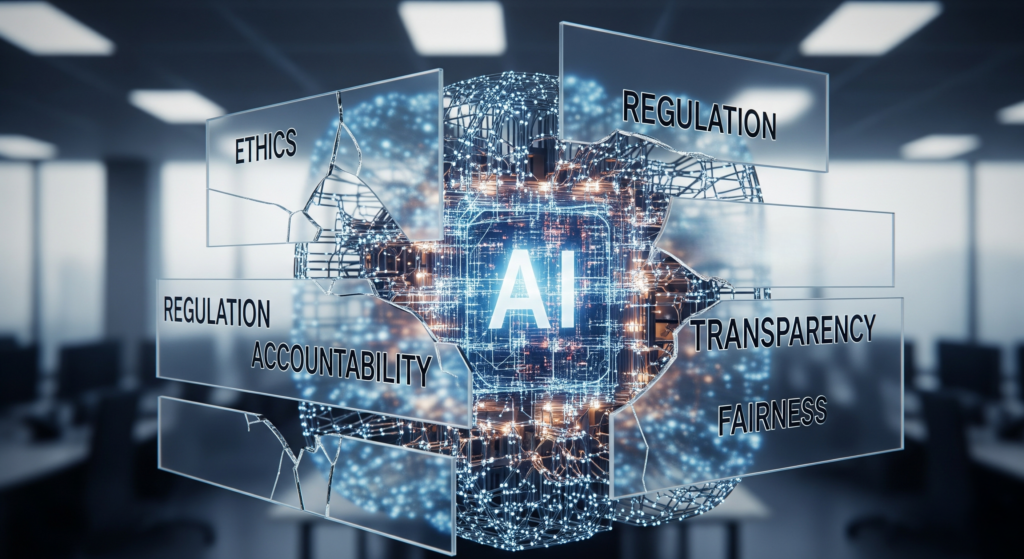Why C-Suite Leaders Are Betting Big on Fine-Tuning?
Generative AI has shifted from hype to boardroom strategy. According to PwC, 73% of U.S. companies have already embedded AI into their business processes, and a staggering 92% plan to expand adoption this year. The message is clear: C-level leaders are no longer treating AI as an experiment, it’s becoming a foundational capability.
But here’s the catch: while foundation models like GPT, Claude, and LLaMA are powerful, they’re also generic. To deliver real enterprise value, companies need AI models that speak their language, understand their data, and align with their workflows. That’s where fine-tuning enters the picture, and why it’s emerging as one of the most strategic conversations in executive circles today.
Fine-tuning allows businesses to:
- Infuse models with domain-specific knowledge (e.g., legal, healthcare, finance).
- Improve performance on specialized tasks far beyond what off-the-shelf models can achieve.
- Reduce reliance on “prompt engineering hacks” by creating models that inherently know your business logic.
As one McKinsey analyst put it: “The real power of generative AI comes from fine-tuning models to suit specific enterprise needs.”
Yet, as enterprises pour resources into tuning models with proprietary data, a critical question looms: Can we trust these models?
The Governance Gap in Fine-Tuning
Despite enthusiasm, governance around AI is alarmingly underdeveloped. A recent EY survey revealed that nearly every enterprise has adopted AI, but less than half have implemented robust governance frameworks. This gap is a red flag for leaders overseeing billion-dollar decisions.
Key risks keeping executives awake at night:
- Data Privacy – Fine-tuning often involves sensitive data. If leaked or mishandled, it can expose trade secrets, health records, or financial information.
- Bias and Ethics – Without oversight, fine-tuned models may amplify unfair biases. In regulated industries, that could mean lawsuits or reputational damage.
- Intellectual Property (IP) Ownership – Companies worry that proprietary datasets used for fine-tuning could be “absorbed” into broader models without attribution—or worse, reused by competitors.
KPMG highlights a growing concern: companies want to ensure attribution for their IP when it powers AI, and even receive royalties for its reuse.
This is where blockchain technology, once seen purely through a crypto lens—is gaining new relevance for the AI era.

Blockchain: The Missing Trust Layer for Fine-Tuning
Imagine every fine-tuning step, data ingestion, model training, updates recorded on an immutable ledger. Imagine knowing exactly which dataset shaped which model output. This isn’t sci-fi, it’s blockchain applied to AI.
Here’s how blockchain strengthens responsible AI fine-tuning:
- Data Provenance & Auditability
Blockchain creates a tamper-proof record of training data and model changes. Platforms like Prove AI already use blockchain to track datasets and training processes, ensuring a full “chain of custody.” If a model produces an error, auditors can trace it back to the exact data and parameters that caused it. - Secure Collaboration
Fine-tuning often requires contributions from multiple parties—data providers, cloud vendors, model developers. Blockchain enables collaboration without blind trust. Each contribution is logged, verified, and often incentivized with tokens, ensuring fair play and security. - IP Protection & Royalty Management
Smart contracts allow businesses to encode licensing terms directly into AI training workflows. If your dataset fine-tunes a model, blockchain can ensure attribution and even automate royalty payouts. This addresses one of the thorniest IP concerns in generative AI today.
Put simply: blockchain acts as a digital notary for AI fine-tuning, guaranteeing transparency and trust in an increasingly opaque ecosystem.
Building Consumer Confidence Through Transparent AI
Beyond enterprise governance, blockchain also addresses a critical dimension: customer trust. In the generative AI era, end-users increasingly demand to understand how AI models make decisions. Blockchain’s immutable ledger enables transparent tracking of every fine-tuning step, from the datasets used to the parameters adjusted, making the AI’s evolution fully auditable.
For consumers, this means:
- Verifiable Model Lineage: Every prediction or recommendation can be traced back to its exact training data and fine-tuning process. Users can verify that the model respects ethical guidelines, data privacy, and domain expertise.
- Confidence in Accuracy and Fairness: Immutable audit trails reduce the risk of hidden biases or opaque errors, giving users assurance that the AI operates reliably.
- Trust in Proprietary Contributions: If user-provided data improves the model, blockchain ensures their contributions are recognized, fostering a sense of participation and ownership.
Put simply, blockchain transforms AI fine-tuning from a “black box” into a transparent, trustable system, helping companies not only comply with regulations but also earn the confidence of customers who rely on AI-driven decisions.

Emerging Ecosystems: Decentralized AI Marketplaces
Beyond governance, blockchain is enabling a shift in how AI itself is built. Traditional AI is centralized, controlled by a few tech giants. But in 2025, decentralized AI marketplaces are disrupting that model.
Platforms like Bittensor and SingularityNET allow anyone to contribute datasets, models, or compute resources. Contributions are recorded on-chain, and contributors earn tokens based on the utility of their work. Smart contracts handle payments, licensing, and governance, removing intermediaries.
This ecosystem approach has profound implications:
- Enterprises can source niche datasets or fine-tuned models globally.
- Developers in emerging markets can contribute and monetize expertise.
- Transparency ensures every AI asset has provable lineage.
For C-suite leaders, decentralized AI represents not just innovation, but strategic resilience: no vendor lock-in, community-driven improvements, and regulatory-ready auditability.
Real-World Momentum
This isn’t just theory. Companies are already deploying blockchain in AI fine-tuning workflows:
- Prove AI – Uses blockchain to create an immutable record of every dataset and fine-tuning step, giving enterprises full visibility and traceability of how AI models are trained and updated. This ensures AI systems meet governance, compliance, and audit standards.
- KPMG – Has pioneered blockchain-based data management for AI, with patented systems that track data provenance across the AI lifecycle. Their solutions help organizations verify data integrity, manage permissions, and maintain regulatory compliance.
These pioneers show how blockchain + AI isn’t a future promise it’s happening now.
The Path Forward with Responsible AI
As AI fine-tuning becomes an enterprise-wide imperative, trust will define winners and losers. Enterprises that combine AI performance with blockchain-backed transparency will gain regulatory confidence, protect their IP, and build lasting competitive advantage.
This is exactly where blockchain platforms come in. FLEXBLOK blockchain as a service platform is designed to enable responsible AI at scale, bringing verifiable trust, governance, and auditability into AI model fine-tuning. Whether you’re a global enterprise fine-tuning large generative models, or a fast-scaling startup seeking compliance, FLEXBLOK provides the blockchain backbone for responsible AI adoption.
Explore how FLEXBLOK can help you build trustworthy, scalable AI systems: Get a free use case


